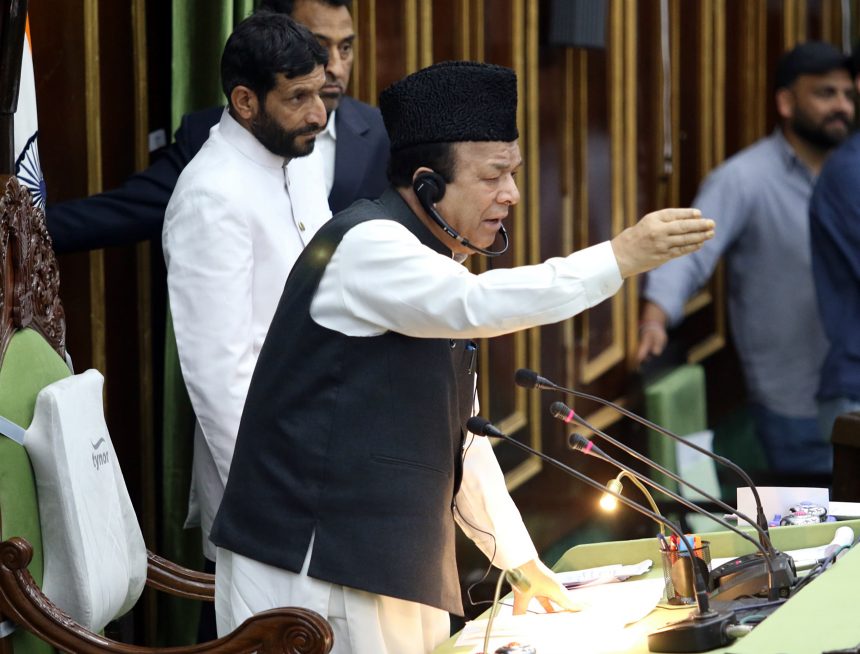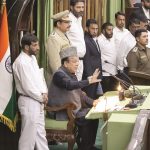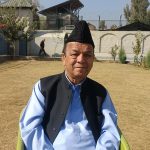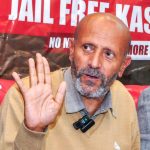Srinagar, Apr 08: A political storm erupted in the Jammu and Kashmir Legislative Assembly on Monday after opposition parties, led by the Peoples Democratic Party (PDP) and Peoples Conference (PC), submitted a no-confidence motion against Speaker Abdul Rahim Rather.
The move came in response to the Speaker’s refusal to allow a discussion on the Waqf (Amendment) Bill-2025, a decision that has sparked sharp criticism and widespread outrage within the House.
The no-confidence motion was jointly submitted by PC President Sajad Gani Lone and PDP MLAs Waheed-ur-Rehman Para, Mir Muhammad Fayaz, and Rafiq Ahmed Naik. In the resolution, the opposition accused the Speaker of undermining democratic norms by rejecting their adjournment motion and refusing to admit a resolution related to the controversial Waqf Bill.
“This decision stems from widespread outrage within the House over the Speaker’s actions, including the rejection of discussions on the adjournment motion and the refusal to entertain a resolution brought forward by opposition parties,” the resolution stated. “Such conduct undermines the democratic principles and procedures governing this esteemed institution, prompting this resolution to address the matter,” it added.
Despite the opposition’s push, the ruling National Conference said it would not support the no-confidence motion.
Speaking to reporters outside the House, NC MLA Salman Sagar said that the party stood by Speaker Rather. “No, not at all,” he said when asked if NC would back the motion brought by Kashmir-based opposition parties.
The controversy began when Speaker Abdul Rahim Rather rejected two adjournment motions submitted by nine members regarding the Waqf Amendment Act.
He said that the matter was currently sub-judice and hence not eligible for discussion under Assembly Rule 58(vii), which bars motions on issues under judicial consideration. “The matter has been challenged before the Supreme Court, so the notices cannot be admitted,” the Speaker said on Monday, which sparked protests from several legislators.
Some members argued that the matter was not sub-judice, citing the example of the Tamil Nadu Legislative Assembly, which recently passed a resolution opposing the proposed Waqf Bill. In response, the Speaker said that while it may not have been sub-judice earlier, it was now before the Supreme Court, making any discussion impermissible under the rules.
The rift deepened as both ruling and opposition members—barring the BJP—again demanded that the issue be taken up. The Speaker said he had made his decision based on the rules and would not reverse it. “I made my decision as per rules and I will not change it,” he said. “Whether it is the government, minister, opposition members or somebody else, I have to weigh the statement as per the rules. If the rules do not allow it, it hardly matters to me who is making the statement.”
He added that by disrupting the Assembly proceedings, the members were doing a disservice to the public. “If they are not allowing the House to work, it is their own loss and the loss of the public because the last three days were meant for private members’ resolutions and bills, along with 8 calling attention motions on Monday and Tuesday, and over 40 to 50 questions of public importance.”
Some legislators also argued that since the Supreme Court has not yet served notices in the case, the Assembly was still within its rights to discuss the issue. But the Speaker rejected that argument as well, referring to Rule 58(ix), which states that the Assembly has no jurisdiction over legislation passed by Parliament. “The law can be revoked only by Parliament or the judiciary,” he reminded the House.








